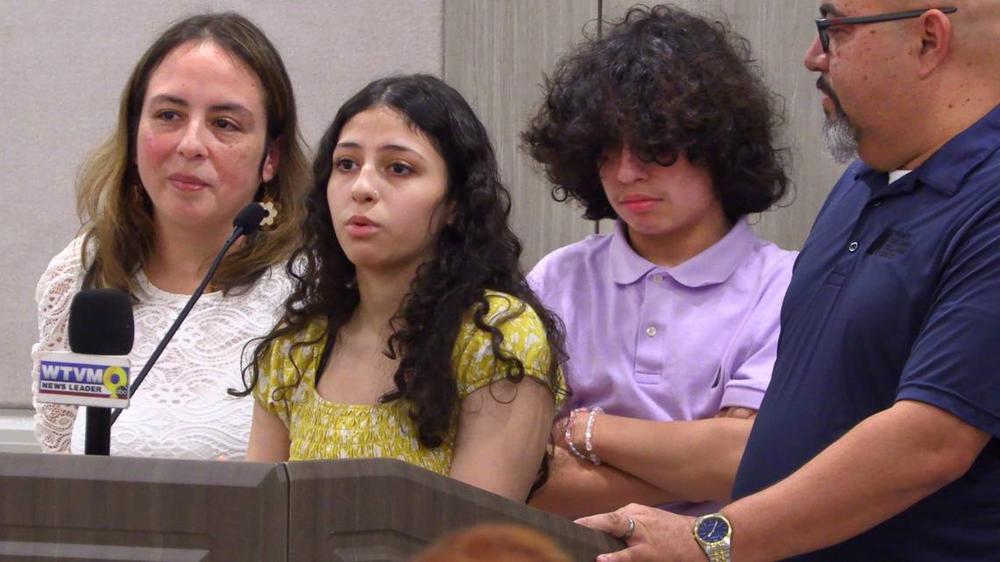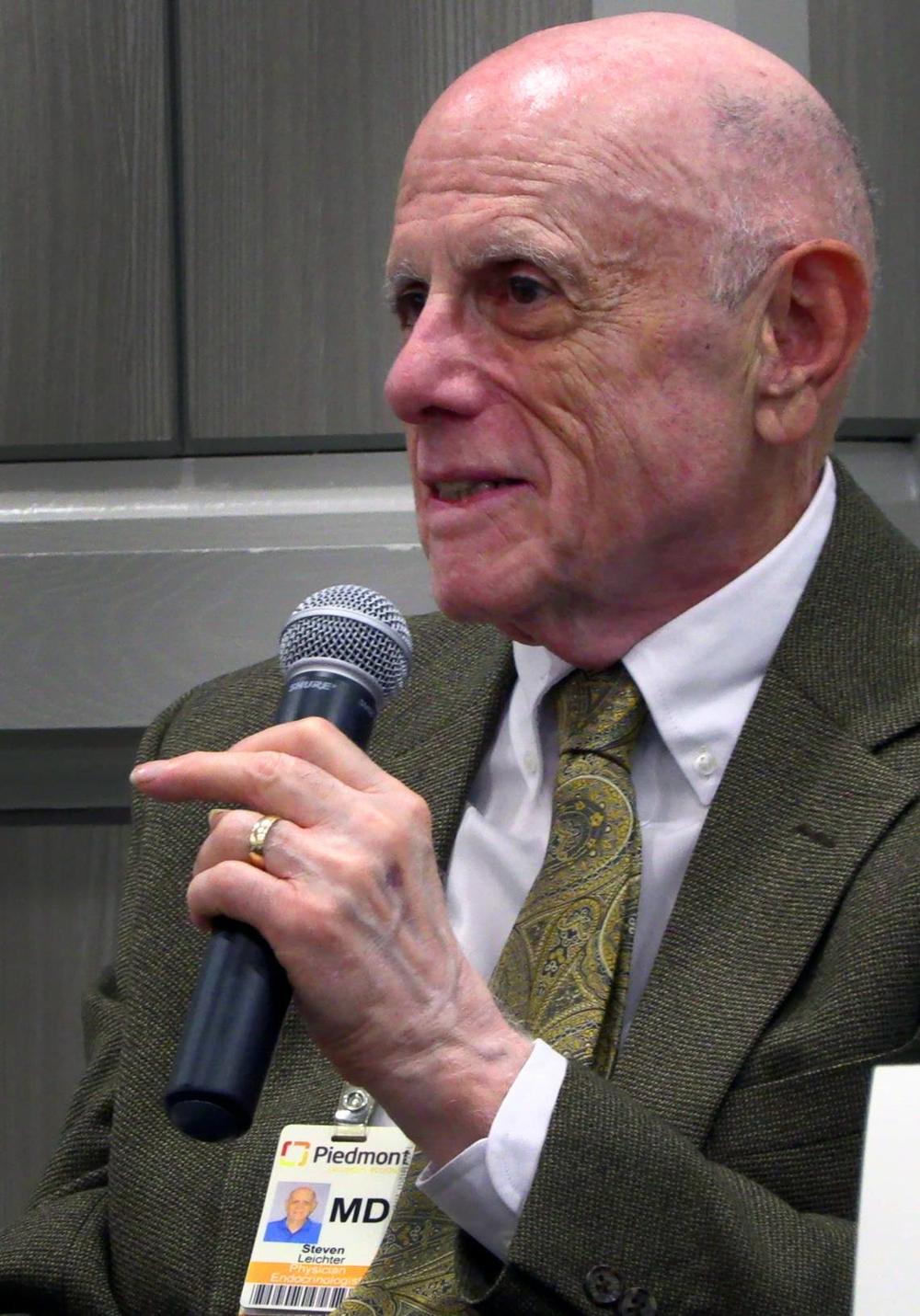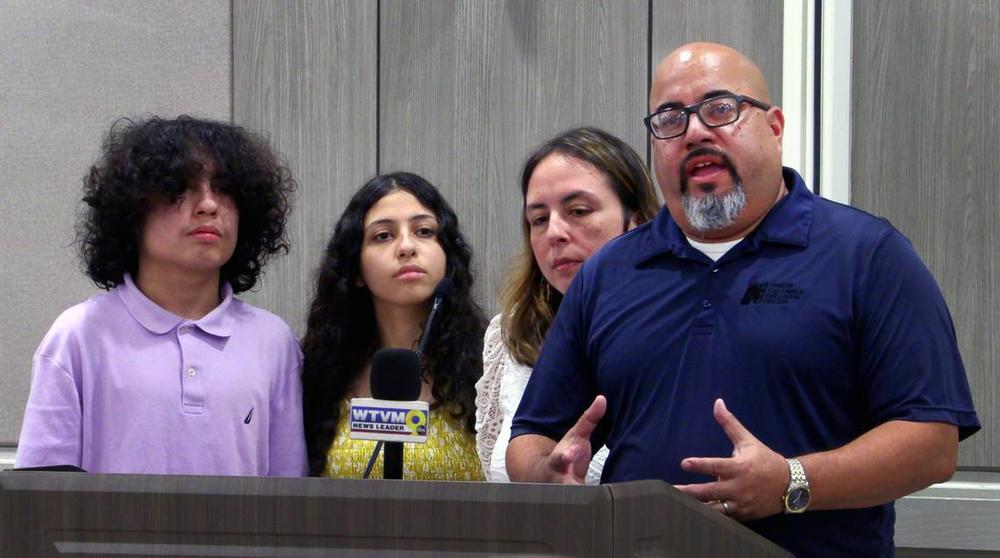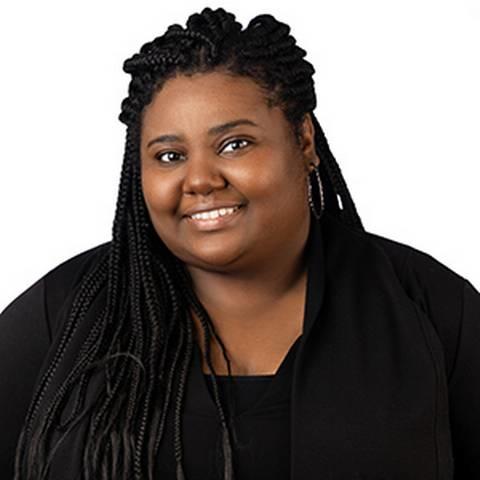
Caption
Ella Velez, center, speaks during a Thursday afternoon press conference at Piedmont Columbus Regional Hospital in Columbus, Georgia. With her are her mother, Lorna Velez, brother Alex Velez, and father Luis Velez.
Credit: Mike Haskey/Ledger-Enquirer




